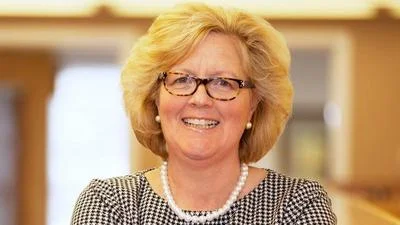Rep. Tom Demmer (R-Dixon) defended the work and compromise that went into the state's public school funding bill before its House passage on Aug. 28. Some of his Republican colleagues didn't agree that the results lived up to expectations.
“I’d like to commend representatives from both sides who have worked on this issue,” Demmer, who co-sponsored Senate Bill 1947, said. “I think we have a fair compromise here. It doesn’t do everything that we are looking for it to do, but I think it’s a step in the right direction.”
SB1947, a 500-page product of bipartisan negotiations, will supposedly provide money to schools across the state fairly and equitably via an evidence-based funding model. A hold-harmless clause means schools will receive at least the same amount of money as they did the year prior. State aid will be prioritized to schools that are most in need.
Chicago Public Schools (CPS) will also receive roughly $450 million more than expected from previous education proposals, and the bill contains a provision to give $75 million in tax credits to donors to scholarships to help low-income students attend private schools.
“There is never an ability in a compromise for one side to say they got everything they were looking for,” Demmer said. “Sometimes an issue that you wanted to have addressed wasn’t addressed. Sometimes things don’t go far enough. Sometimes they go too far. The nature of legislation that we have in this General Assembly is that many times we are forced to make a decision based on (the results of the input) of all 118 members or of those people who have negotiated it in a more direct way.”
Reps. Jeanne Ives (R-Wheaton) and David McSweeney (R-Barrington Hills) didn't agree that whatever compromise was made provided hoped-for results.
“None of the process to date has been focused on outcomes: performance, students and outcome,” Ives said. “There is nothing in this bill that talks about measuring student growth in order to receive more money, nor does it talk about funding the right items and showing that the outcomes actually came out of funding the right items. This is all an input-based model.”
McSweeney argued that the state could not afford the bill and that there was no guarantee that money will go directly toward the students.
“This does nothing overall to ensure, under the new formula, money is spent on the new classrooms,” McSweeney said. “It does nothing to reduce administrative expenses. It doesn’t even require a consolidation study by school district.”
After initially failing, SB1947 passed the House on a second vote, 73-34. The Senate passed the bill the next day, 38-13, and Gov. Bruce Rauner signed it Aug. 31, giving Illinois its first education funding reform in two decades.






 Alerts Sign-up
Alerts Sign-up